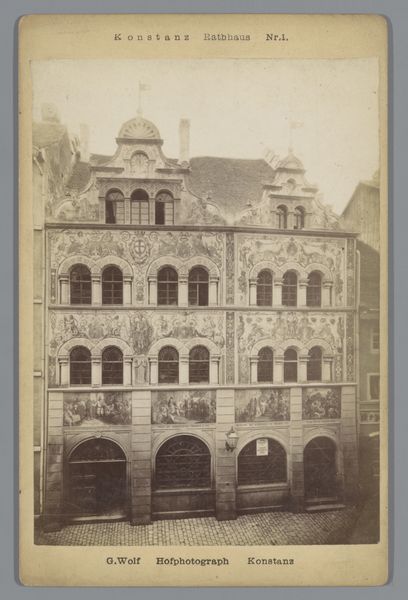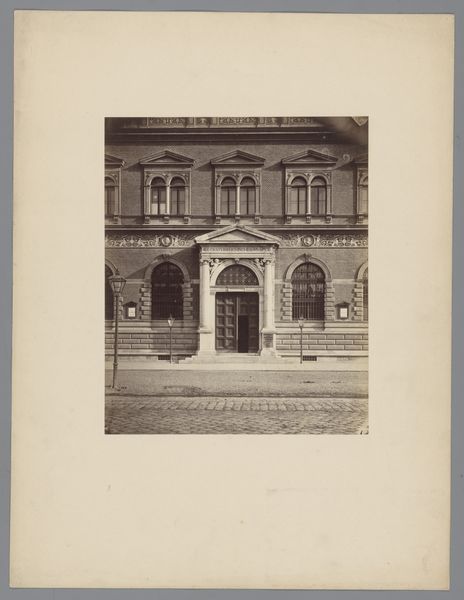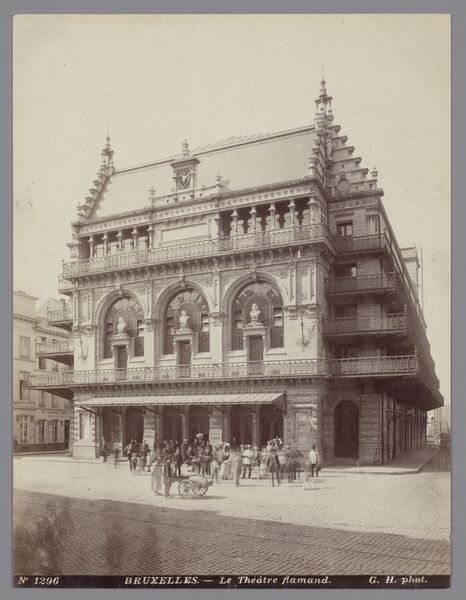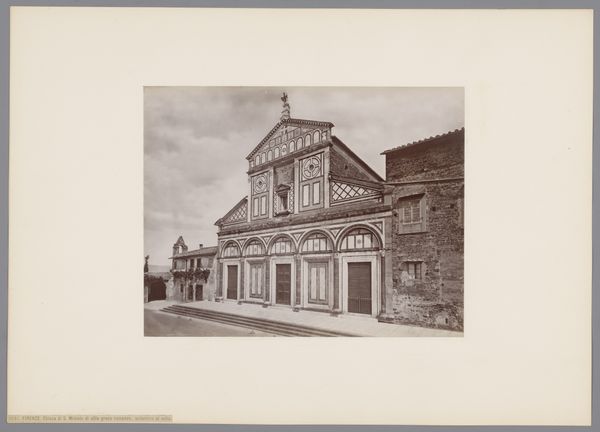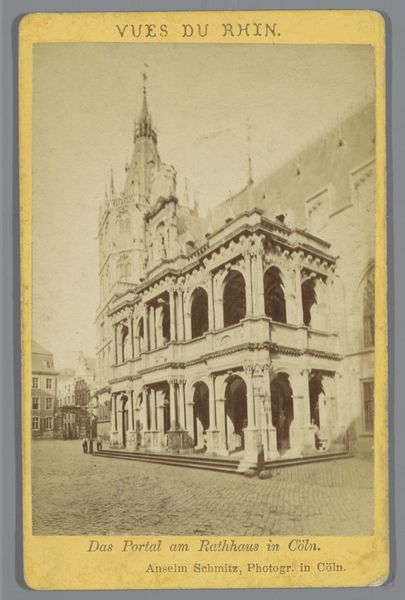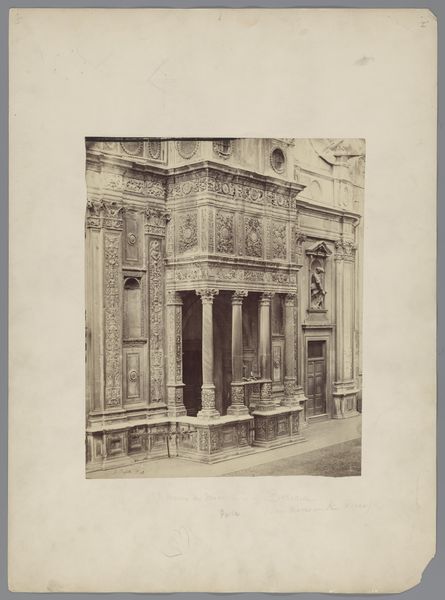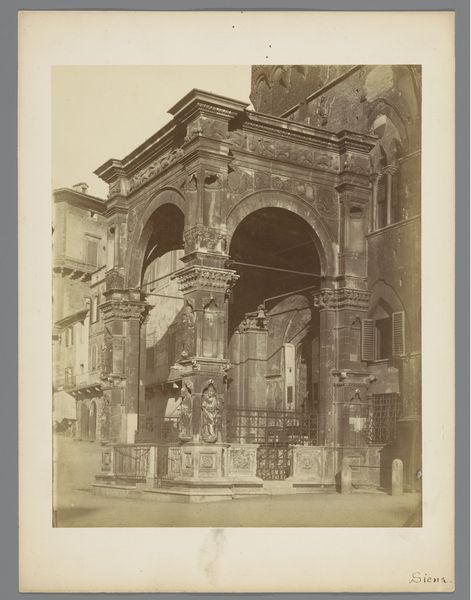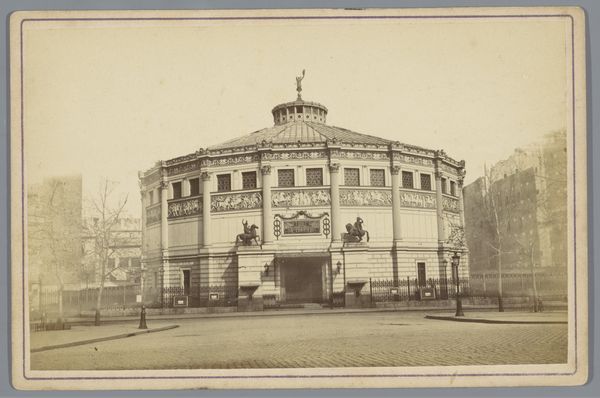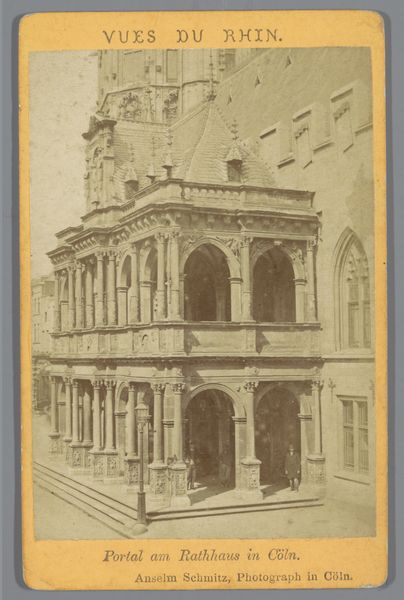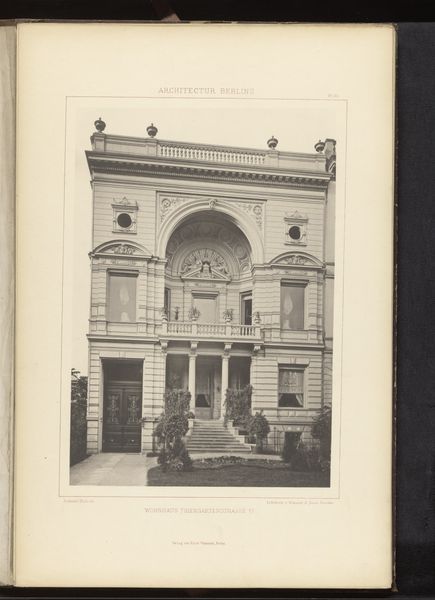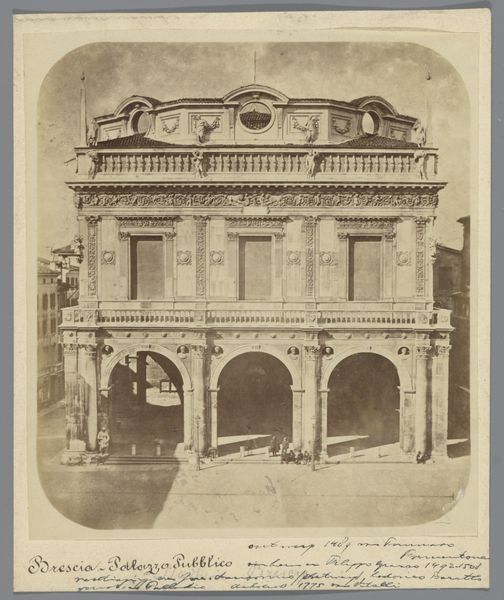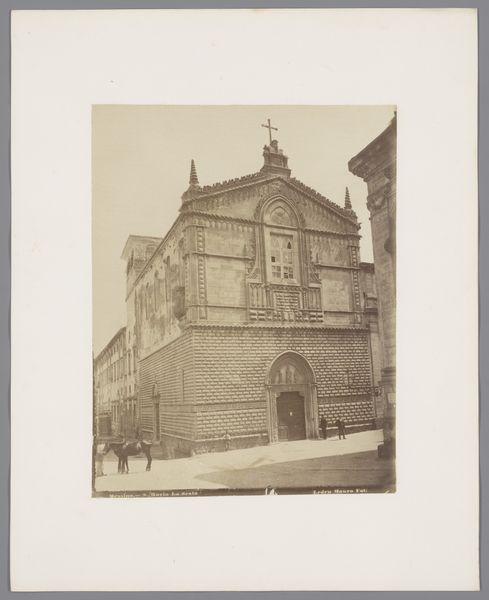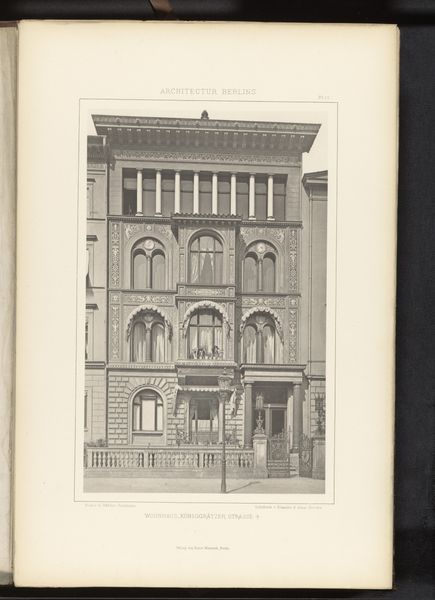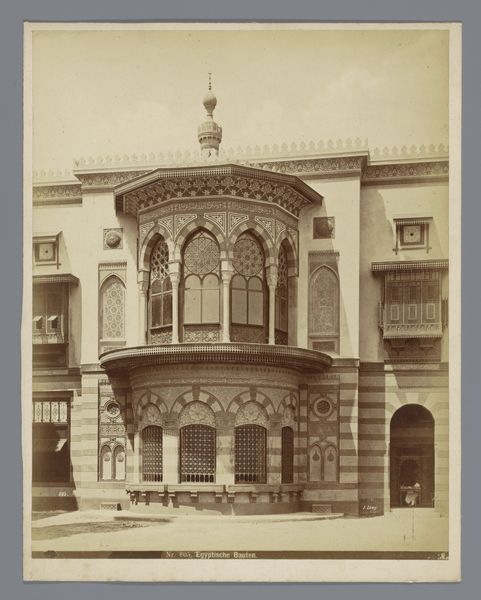
photogravure, print, photography, architecture
#
photogravure
# print
#
photography
#
cityscape
#
architecture
#
realism
Dimensions: height 248 mm, width 190 mm, height 264 mm, width 202 mm
Copyright: Rijks Museum: Open Domain
Giacomo Brogi created this albumen print of the Baptistery in Florence sometime in the mid-19th century. Photography, then a relatively new medium, involved a complex interplay of chemistry and light. The process began with coating a glass plate with light-sensitive chemicals. After exposure in the camera, this plate was developed to create a negative, from which multiple prints could be made on paper coated with albumen, derived from egg whites. In this print, the Baptistery's imposing structure dominates the scene. The photograph captures the building's marble exterior with remarkable clarity, emphasizing the texture and the weight of the stone. Light and shadow interplay across the surface, accentuating the depth of the carved details and the rhythmic pattern of the facade. Brogi's choice of albumen printing lent his photographs a distinctive warm tone and a smooth surface, and the laborious wet plate process was quite different from pressing a button today. This image reminds us that photography was once as much a craft as an art, demanding skill, patience, and a deep understanding of materials.
Comments
No comments
Be the first to comment and join the conversation on the ultimate creative platform.
